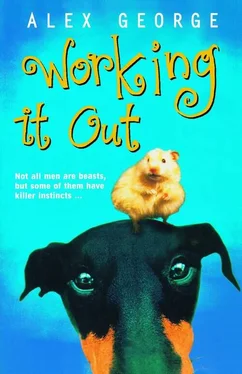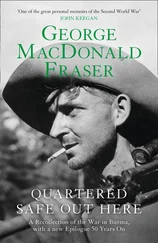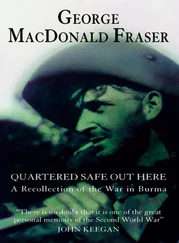‘Oh well,’ said Johnathan, brightening slightly.
‘It should be absolutely fascinating,’ continued his mother. ‘They’re putting on a lesbian Macbeth, in Welsh.’
‘I see,’ said Johnathan. There was a long pause.
‘Anyway, darling, we must dash if we’re going to miss the traffic. I’ll give you a call early next week. Bye.’
‘Bye.’
Johnathan thought about his parents on their way to their latest jaunt in Wales. To them, culture was a commodity which could be acquired and traded. His parents patronized (in both senses of the word) a stable of unknown artists, whose works hung throughout their cluttered North London home. They invested speculatively but without aesthetic discrimination in the hope that one day the painters would become hugely important and their paintings hugely valuable. Some of the paintings were all right, others were capable of inducing powerful migraines. One looked like an ink-blot test given to deranged children from dysfunctional families. Others looked as if they’d been painted by the children who did the ink-blot tests.
Johnathan’s parents firmly believed that there was a direct correlation between culture and society: the higher the culture, the higher the society. Put another way, the more impenetrable the culture, the more impenetrable the posh accents. They liked to surround themselves with creative people. They knew artists, musicians and writers of varying pedigree, members of the Hampstead authordoxy. They knew a lot of women called Hermione. They were so highbrow their foreheads were permanently stuck to the ceiling.
Johnathan, however, was a solicitor, and was therefore a considerable disappointment to his parents. It was not something they could drop into conversation with any hope of carving further notches on the bedpost of artistic pretension. ‘My son the solicitor,’ didn’t have quite the same ring about it as ‘My son the bleak playwright’, or ‘My son the post-modern poet’.
Johnathan, though, suspected that he had an even greater failing in his parents’ eyes. He was straight. He liked girls. He was incontrovertibly heterosexual.
There wasn’t anything specific he could put his finger on to justify his suspicion, but the cumulative circumstantial evidence seemed compelling. He had been encouraged with his dried flower collection from an early age. For his fourteenth birthday he had received a copy of Joe Orton’s diaries, and was earnestly told that it represented a viable lifestyle choice. His parents always looked rather crestfallen when he introduced them to new girlfriends. Worst of all, though, they had added an ‘h’ to his name.
Johnathan’s extra ‘h’ had been a source of irritation and inconvenience for as long as he could remember. Nobody except for his parents knew quite why it was there, squatting like an uninvited guest in the middle of his first name. Every credit card, chequebook, and bill missed out his ‘h’. The only people who ever spelled his name correctly were the promotions department at Readers’ Digest who regularly tried to entice him into entering the Biggest Prize Draw Ever. He had grown accustomed to watching people frown slightly as they looked at his business card, while they tried to work out what was wrong with it. Johnathan had become convinced that his parents had burdened him with the redundant consonant to show that their son was somehow different. Well, maybe he was, but not that different.
Sexually Johnathan had grown up in a drearily unspectacular way. He finally managed to lose the millstone of virginity during his first, parent-free, week at university in the traditionally messy and awkward way. He was leerily propositioned by an unattractive and very drunk biochemistry postgraduate in the college bar, and woke in her bed the next morning experiencing elation, disgust, and a splitting headache. After that Johnathan had failed to have proper sex with anyone else until he had left university.
Johnathan remembered that there was a bottle of aspirin in the bathroom. His hangover was clearly too sophisticated to be dealt with simply by way of sleep. Something chemical was required. He sloped off to the bathroom, took three pills, and went into the kitchen.
Johnathan switched on his espresso machine, which soon began to chugger and whoosh and gurgle in a way more soothing than any mother’s heartbeat. He had never really stopped to consider his relationship with his coffee machine from a Freudian perspective. It was certainly closer than the one he enjoyed with his mother.
When the little yellow light on the machine clicked itself off, Johnathan flicked the switch and watched as the twin nozzles which hung beneath the matt black belly of the machine began to trickle thick, black liquid into the waiting cup. A few seconds later, the cup was full. Johnathan lifted it to his nose and breathed in deeply, relishing the espresso’s aroma. He sighed a small sigh, and then tipped the contents of the cup down his throat in two quick movements, rather as if he was taking medicine. Johnathan shut his eyes for a few moments, and allowed his mind to go blank. Then he opened them again, and switched the coffee machine back on. Round two.
Some hours later, fully caffeined-up and a few chores to the good, Johnathan sat on his sofa watching a children’s Saturday morning television show. His hangover had slowly cranked itself up to full throttle at around ten o’clock but since then had been winding down so that now it only hurt when he moved or thought. Watching children’s television required him to do neither.
Johnathan’s dog, Schroedinger, was asleep next to him on the sofa, his head resting peacefully in Johnathan’s lap. Nobody knew exactly what unlikely communion had produced him. He looked like the result of a bizarre experiment where a Scottie had mated with a porcupine.
When first-time visitors to the flat met Schroedinger, the conversation always followed the same course with an inevitability which Johnathan had begun to resent.
Visitor: Ah, what’s his name.
Johnathan (gloomily, for he knows what is to come): Schroedinger.
Visitor (frowning): You can’t call a dog Schroedinger.
Johnathan: Why not?
Visitor: Well, you know, Schroedinger’s Cat.
Johnathan (peevishly): Yes?
Visitor: So. It would be all right for a cat, but not for a dog.
Johnathan (testily): But the cat wasn’t called Schroedinger. The cat belonged to Schroedinger. Sort of.
Visitor: Yes?
Johnathan: So, logically, a cat is the last creature you would call Schroedinger.
Visitor (uncertainly): Because.
Johnathan: Because cats don’t own cats.
Visitor: Are you telling me that your dog owns a cat?
Johnathan: No of course not–
Visitor: Well then.
Johnathan:–all I’m saying is that, logically, it makes more sense to call a dog Schroedinger than a cat.
Visitor (unconvinced): But Schroedinger’s Cat.
Johnathan: OK, take another example. Take a Rubik’s cube.
Visitor (unsure where this is leading): OK.
Johnathan: Well, you obviously wouldn’t call a Rubik’s cube ‘Rubik’, would you, because we all know that’s the name of the chap who invented it.
Visitor: ?
Johnathan: Look, if you’re going to be picky, Schroedinger’s Cat was dead anyway.
Visitor (cleverly): Ah, but that’s the point. We don’t know that.
It was on days like this that Johnathan was relieved that Schroedinger was, if anything, lazier than he was. He was not the sort of dog which insists on dragging its owner for a brisk tour around all the interesting piles of dog shit in the area within five minutes of its owner’s first bleary-eyed appearance in the morning, and Johnathan loved him dearly for it. Schroedinger preferred to remain in the relative tranquillity of Johnathan’s small garden, where he could relax and defecate at leisure.
Читать дальше












